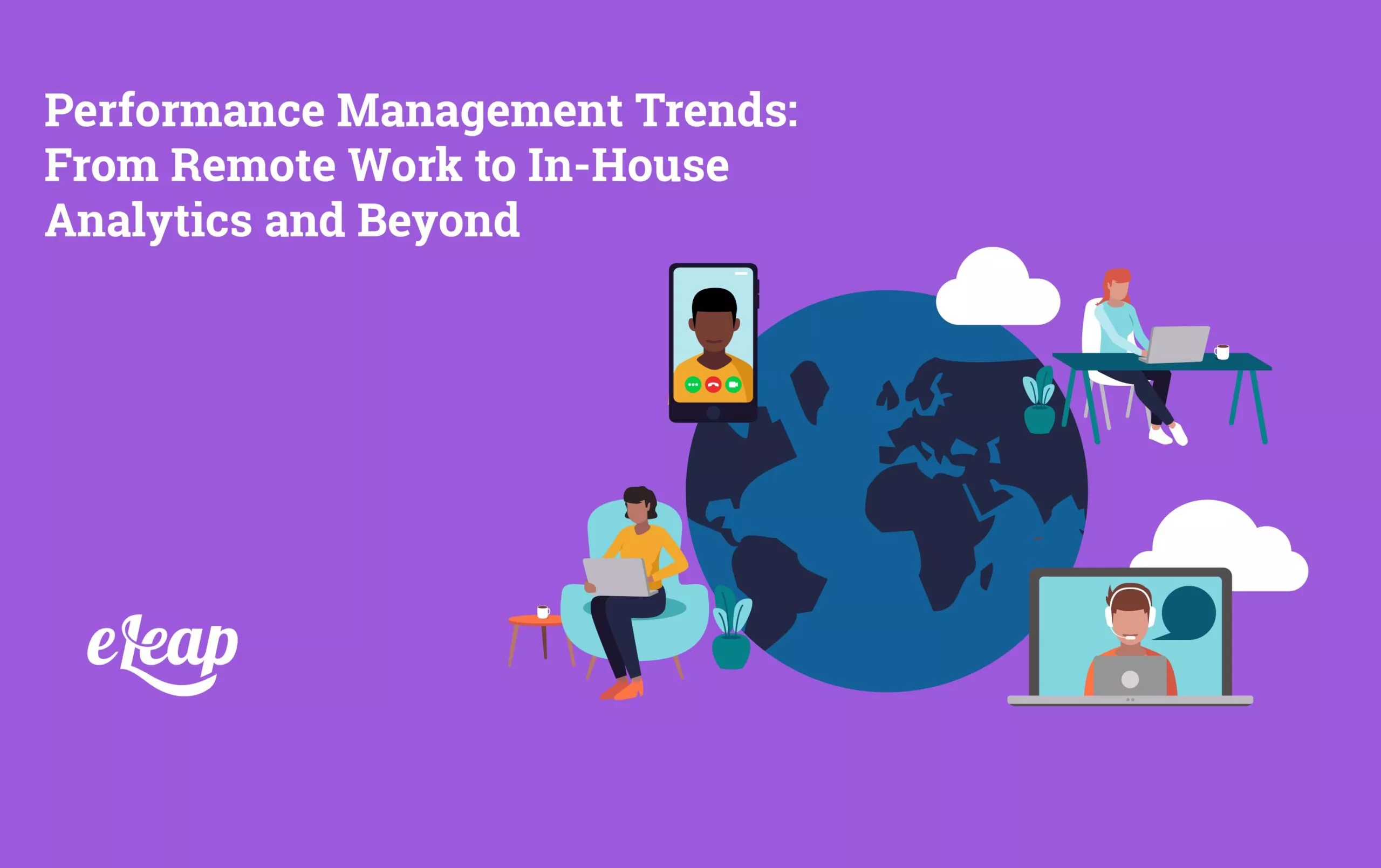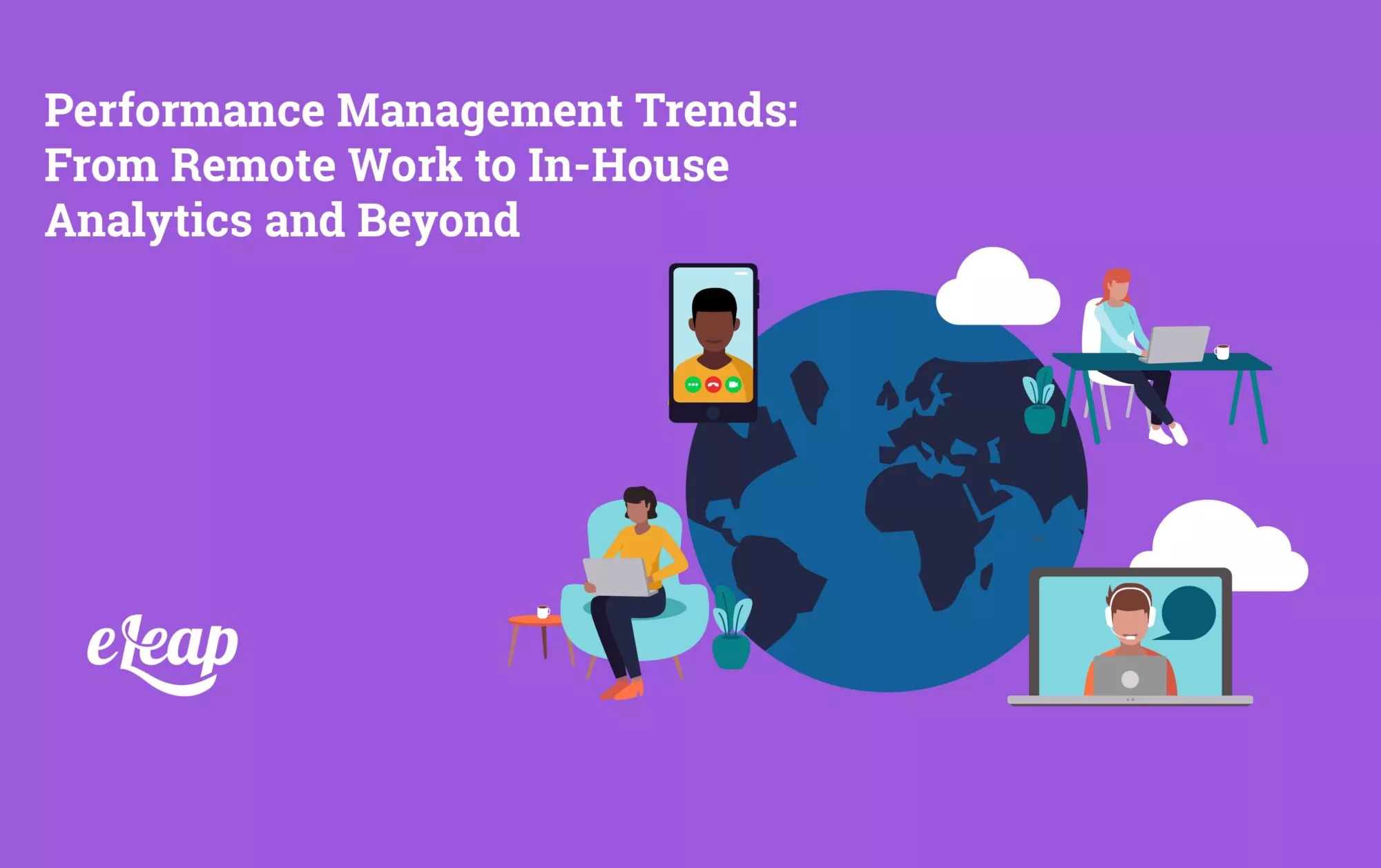Performance Management Trends: From Remote Work to In-House Analytics and Beyond

The way the world works has changed, and it is still changing. While CEOs might not be hiring robot assistants and people aren’t flying their spaceships to work, the future is here and it is a lot more high-tech than many people ever anticipated. Performance management has evolved, as well, and the focus on the future is about reaching more into available resources to monitor things like mental health, work-life balance, and the “human experience” of the employee’s role in the workplace.
This essentially emphasizes the value of personalizing or giving meaning to the work that employees do, this personalized touch is what will set the performance management sector on a new path. In this article, we will discuss some of the trends being highlighted in 2022 and beyond in the realm of performance management.

Focus on Remote Performance Metrics
As many companies still work remotely or have transitioned to remote work for good, the types of metrics that organizations track have changed, as well. For example, KPIs are no longer a solid source of data for many modern remote teams. Instead, they focus on ongoing metrics and performance management trends that can enhance the success of the team in its remote state. Less emphasis is placed on things like participation in onsite group training since these are less frequent, while more emphasis is being placed on performance management goals like:
- Working independently to accomplish goals and provide deliverables in a timely manner
- Collaborating with colleagues and team members via message boards and other virtual communication tools
- The ability to utilize cloud-based platforms to complete various tasks and duties throughout the day
- A balance of independence and interaction to stave off the feeling of loneliness or isolation that often comes from remote work
- And so forth
The idea is that if organizations can focus more on how people are working separately (in a remote sense), it can help them figure out how to get them to work better together. It’s a learning curve, for sure, but it is seeing impressive growth and results.
The Shift from Learning to Performance
While a well-developed LMS is crucial to ensure that people have the learning resources that they need, it is equally important to have a strong focus on performance management. This can be done through your performance management system designed to help you enable your organization and its people to develop more effectively both in their professional roles and as people in general.
Since performance management has a new selection of data resources, it can become more objective and holistic than ever before. Things like mental health and wellness, personal skills and needs, and other personalized elements are making their way into many companies’ best practices, company cultures, and even their performance management software and metrics.
No More Annual Reviews
Are you still doing annual performance reviews? 360-feedback, coaching, and ongoing feedback are much more effective and according to Harvard Business Review, the revolution is here. It’s time to change the way we manage performance because the world is changing the way that we work, both physically and otherwise. It’s no longer about checking in to see how someone did on their previous goals and setting new ones—it’s about having conversations in real-time regarding the expectations and goals of the employee.
One way to keep people’s attention when trying to engage in ongoing feedback like this is to ensure that employee performance is monitored in the same way that business happens: continuously over time. Static metrics and the KPIs of decades past no longer tell companies enough. That’s where proactive performance management takes center stage for 2022 and beyond.
Technology Enables Better Performance Management
The final trend for 2022 is the growing reliance on technology to manage and monitor employee and organizational performance. Of course, having that technology ensures that companies can monitor the right parts of their business operations. Next-gen technologies and modern cloud-based solutions are embedded into the day-to-day operations of a business and integrate with traditional software and HR programs, ensuring that everyone is on the same page.
The Great Resignation caused a huge uptick in the number of employees who are refusing to work for an organization without a reputable, people-focused culture. The market for performance management software is expected to grow as much as 13% by 2025 and the revolution has created a lot of work for engineers creating these platforms.
Creating the Human Experience
As mentioned in the beginning, much of modern performance management is about turning the employee experience into the Human Experience—people are people, not tools, and they’re no longer willing to work for just any company. They want to be treated like humans with thoughts, feelings, needs, and capabilities that are recognized and valued. Deloitte Insights introduced the concept of the human experience in its 2019 report on Global Human Capital Trends, as the main focus of those who are looking to increase:
- Retention
- Efficiency
- Productivity
- Employee engagement
It’s an interesting transition because while the focus is on the human aspect of business, the resources used are all data-based, for the most part. From project management tools that include all different types of resources to dedicated solutions like compensation management software or human resource management solutions, giving people the right tools to feel like a person who’s valued for their contribution is the final trend that organizations need to pay attention to in 2022.
The shift to an ongoing feedback format with a heightened focus on relationships and the overall human experience ensures that performance management can deliver the solutions that an organization needs. Even though the market is going through a bit of a transition, there’s still plenty of room for those who want to get on board with the various performance management trends that have been discussed. The eLeaP continuous performance management system provides organizations with powerful options to attract and retain high caliber team members.